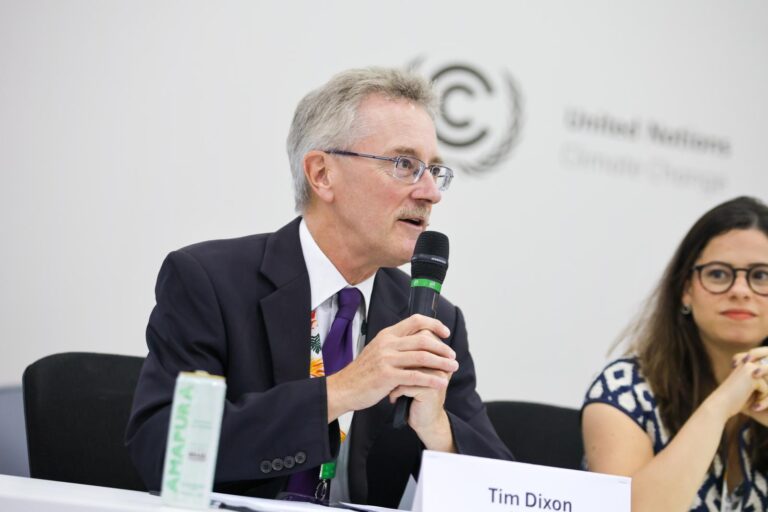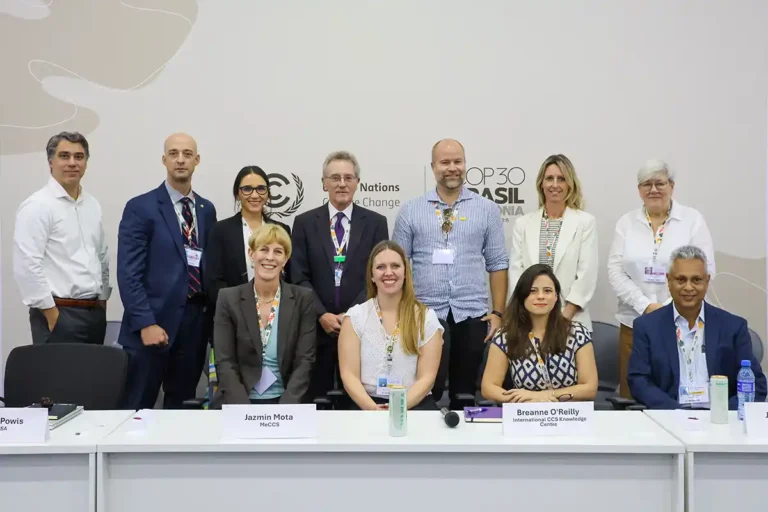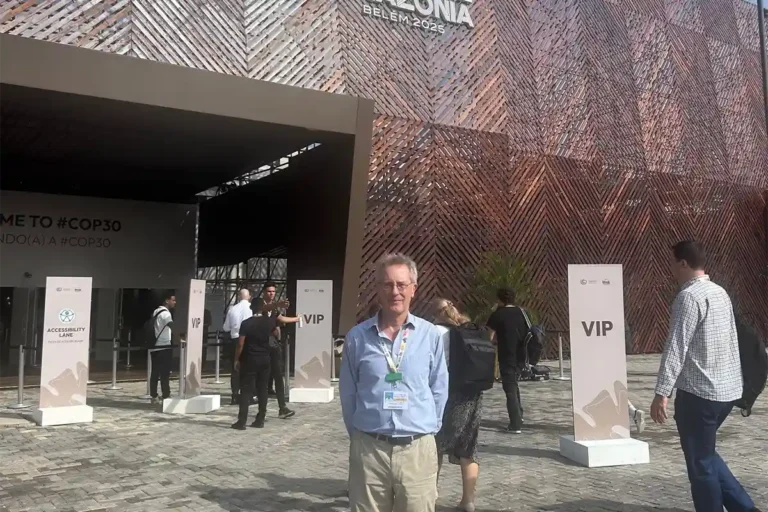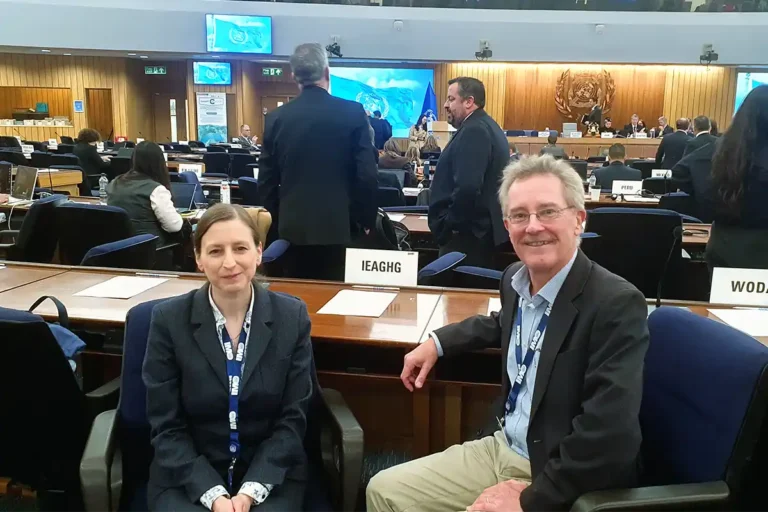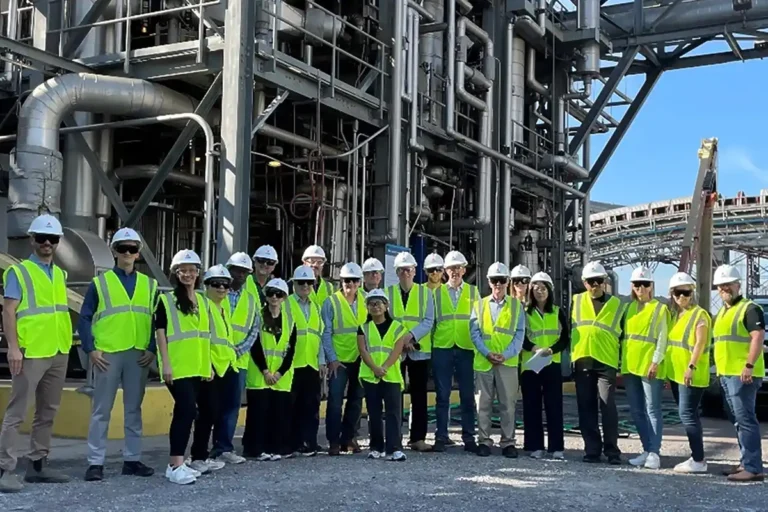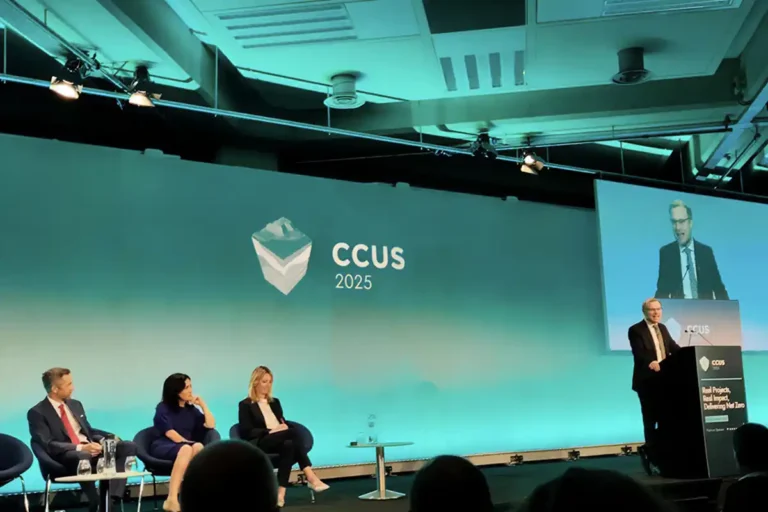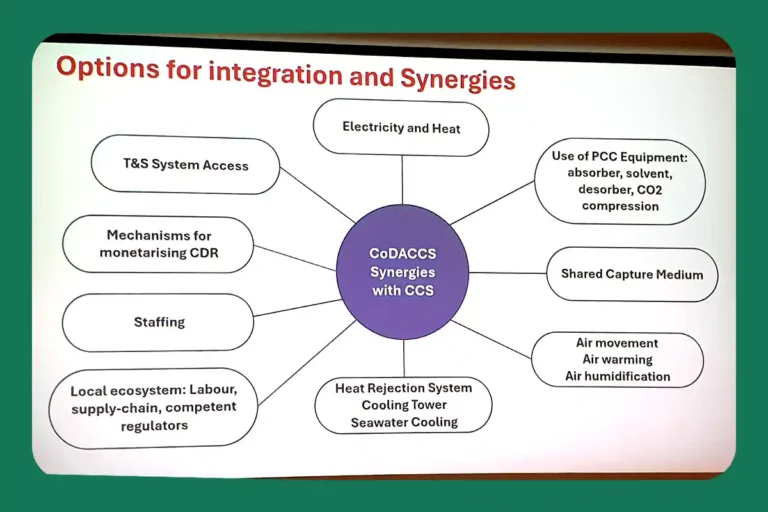
IFC Nigeria Dissemination Workshop on Industrial CCUS and a new Centre of Excellence!
23 October 2023

The Government of Nigeria has identified that CCUS could play an important role in their energy transition and climate targets to achieve net zero by 2060, and also with its diverse applications would stimulate economic and sustainable development. The World Bank’s International Finance Corporation (IFC) and CCS Trust Fund consequently have funded a “diagnostic and scoping study” of CCUS for Nigeria. I was honoured to be invited by the World Bank’s International Finance Corporation (IFC) to participate in the dissemination workshop for this work in Nigeria. This Phase 1 work was to undertake a national CO2 source assessment and initial national storage assessment, then source-sink mapping and suggestion of potential first CCUS projects, stakeholder engagement, and an assessment of regulations and gaps. Note that the IFC’s scope was to focus on industrial sources of CO2, not the oil and gas and fossil power sectors. This workshop in Lagos on 16-17th October was to have the consultants present the initial results to key Nigerian stakeholders for their feedback. Undertaking this work with in-country professionals, in-country stakeholder engagement and such dissemination is very important for capacity building in the country.
It was very exciting to see the first CO2 storage assessment maps of Nigeria, and then how the major CO2 sources were mapped onto these. At around 21Mtpa, the cement sector is the largest source of CO2 from industry. The major CO2 sources are concentrated in the South and South-West of the country, many near the Niger Delta. Because of data availability, the consultants then focussed on storage-depleted oil and gas fields, not saline formations. The potential projects to be identified had to be able to demonstrate the feasibility of CCUS in Nigeria, be impactful, scalable, promote stakeholder buy-in, and be credible as reference projects across Africa. Fifteen candidate projects were identified and ranked, and the top two potential projects identified were a fertilizer plant and a cement plant, of the scale between 2 and 2.5Mtpa, and both would have 100-250km pipelines to offshore storage in the Niger Delta. Pilot versions of these two potential projects were also suggested, at 20ktpa and 10km pipelines to local storage. The conclusion was that commercial-scale industrial CCUS is viable in Nigeria.
I was asked to talk in a panel on learnings from other countries that could assist Nigeria, and we have a wealth of such learnings to be shared, including in establishing national centres of excellence. I was also asked to talk in a panel on enabling environments for the private sector and CCUS, in particular on international carbon markets and CCUS, and on capacity building through education and training such as our International CCS Summer Schools (where we have had many Nigerian students). Despite my best intentions I was only able to contribute virtually, as in-person is best for capacity building and knowledge sharing.
Another exciting development at the end of the workshop was the announcement of a new CCUS R&D Centre of Excellence by the Nigerian Geological Survey Agency. We look forward to future engagement with this when established.
The next stage, Phase 2 of the work, will finalise and publish a national strategy on CCUS, finalise and publish a national storage atlas, commence pre-feasibility work on the two potential first projects, decide on and develop appropriate regulations, and implement capacity building and stakeholder awareness workshops.
IEAGHG has been involved with Nigeria since 2015 in the London Protocol and the Offshore CCS Workshops, and since then showcasing their intentions by having government representatives at our side events at COP26 and COP27 and in a GHGT-16 discussion panel in Lyon. So, it was very rewarding to see these real developments and new knowledge being shared in the country. The high level of interest and positive engagement from the key stakeholders in the audience was very reassuring for future progress.
Full acknowledgement and appreciation should go to the IFC and the World Bank CCS Trust Fund for investing in CCUS in this important African country.
Other articles you might be interested in
Get the latest CCS news and insights
Get essential news and updates from the CCS sector and the IEAGHG by email.
Can’t find what you are looking for?
Whatever you would like to know, our dedicated team of experts is here to help you. Just drop us an email and we will get back to you as soon as we can.
Contact Us NowOther articles you might be interested in
Get the latest CCS news and insights
Get essential news and updates from the CCS sector and the IEAGHG by email.
Can't find what you are looking for?
Whatever you would like to know, our dedicated team of experts is here to help you. Just drop us an email and we will get back to you as soon as we can.
Contact Us Now


